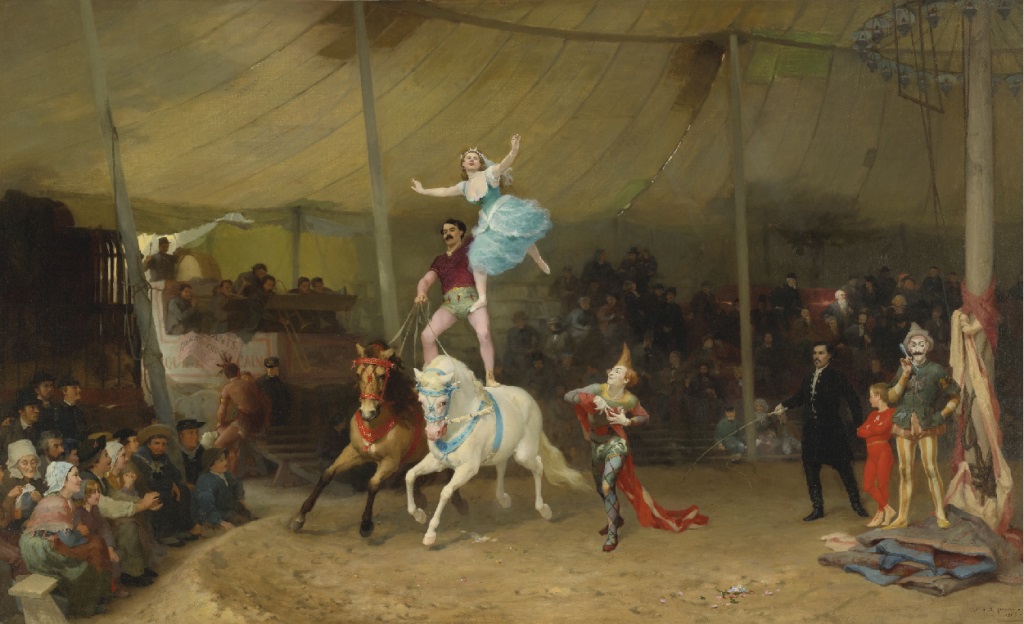An acrobat named Larry Loops
was best among all circus troupes,
But he quit one day
and was heard to say,
“My boss made me jump all those hoops!”
There once was a man from Keele
who slipped on an orange peel.
He fractured his foot
and was told to stay put
on account of his Achilles’ heel.
There was a young girl named Lottie
whose sneaking was so very naughty.
She met a Jasmine—
her friend in quarantine—
and came back to home red and spotty.
Nivedita Karthik is a graduate in Integrated Immunology from the University of Oxford who likes reading books and travelling. She is an accomplished Bharatanatyam dancer and has given many performances. She loves any form of creative writing (especially poems) and writes them whenever she can.
















I really enjoy the anti-humor of the first two. The unresolved tension of a set-up without a payoff is delectable.
Very nice!!
The first two limericks work, but the third could use some polishing. The name Jasmine (in American pronunciation at least) is JAZZ-min. It can’t rhyme with quarantine. Also, the first line seems to miss a syllable. I’d suggest this:
There was a young lady named Lottie
Whose sneaking was so very naughty.
She met Geraldine
Who was in quarantine
And came back to home red and spotty.
Moreover, in limericks every line should begin with capitalization. The genre is ferociously formal, and free-verse posturing should be excluded from it.
I liked the first two limericks, but felt the third needed work! This is how I would change it.
There once was a girl named Lottie.
Whose speaking came out of the pottie.
She met young Geraldine,
who is now in quarantine.
Now Lottie is naughty and spotty.
What is it that you do not understand about anapestic metrical feet, which is what drives the Limerick? duh duh DAH should be recurrent in every line. For example:
A reporter assigned Terre Haute
Came awake with a pen in her throat.
Since her lover had fled
And had left her for dead,
On her pillowcase “Murder” she wrote.
or,
An importer of cheese in Chicago
With an underdeveloped imago,
Even though he knew better,
Blew a sneeze on some cheddar
And re-labeled it fresh Asiago.
[These are two reprints from the five limericks published in Parody Journal as “North Coast Suite”]
Joe is absolutely correct in his insistence on formal ferocity when it comes to short forms such as the limerick.
I find teaching someone is especially effective when you start with “what is it that you do not understand?” The condescension really brings out a willingness to learn,
*learn.
I detect a note of irony here. I’ve never claimed to be a great educator, and I am particularly annoyed by avoidable shortfallings. So what am I to do? Simply stifle my feelings on something that is near and dear to my heart?
I feel there is an opportunity to use your passion as a lamppost to lead the author to gain a stronger grasp of meter. Perhaps I, too, was a bit brusque with my comment, but I feel that great writing comes from great mentorship and constructive criticism; dismissiveness often breeds abandonment.
I don’t know, Roger. Although I might agree with you in principle and in theory, I’m not sure my temperament is up to it. In any case, great writing probably comes from native talent and rigorous attention to detail. You can’t polish a sneaker, and novitiates should not shy from the lash.
Hello everyone,
Thank you for all your comments and constructive criticisms on my work.
I will definitely take these into consideration going forward.
Sorry for the delay in response, I was going through a tough time personally.